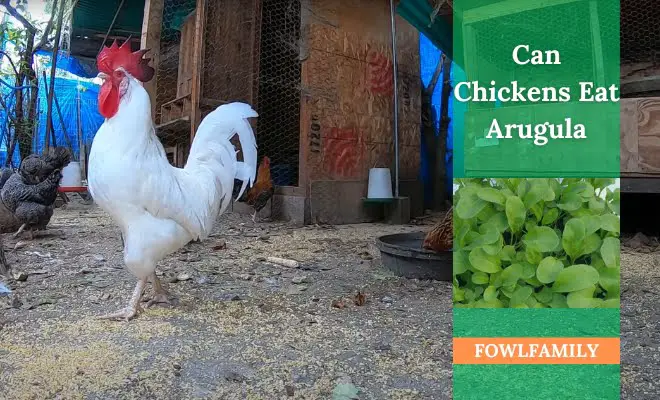Water Belly In Chickens: How to Treat Such Condition?

Water Belly In Chickens, also known as ascites, is a condition that affects these feathered friends. That’s kind of like when you drink too much water. It’s like a big, bloated tummy problem for them.
However, this issue arises when too much fluid builds up in the chicken’s abdomen. Water belly can be caused by different reasons. Such as – heart or lung problems, infections, or issues with the way the chicken’s body processes food. And there is no treatment required. I mean ensure their healthy and balanced life to prevent water belly. That’s it!
In this article, I’ll guide you to know the causes, symptoms, and how to treat such conditions. So, before we make further late, let them feel at ease ASAP.
Table of Contents
What Causes Water Belly in Chickens? 7 Reasons to Note Down First!

There can be many reasons behind the water belly problem in chickens. Most commonly the causes are –
1. Accelerated Growth
The main reason chickens get heart problems is because they grow really fast. Some types, like Cornish chickens, are bred to grow quickly for meat production. This fast growth can stress their hearts, making them more likely to have heart issues.
2. Chronic Breathing Problems
Chickens that have trouble breathing, like with infectious bronchitis or mycoplasma, can get water belly. This happens because these problems make the heart work extra hard. So, it leads to high blood pressure and heart failure.
3. Heart and Lung Issues
Chickens can have problems with their hearts or lungs, just like we can. When these organs don’t work well, it can make fluid build up in their bellies. So, it causes a water belly.
4. Lack of Proper Nutrition
What chickens eat is important. Too much salt, protein, and fat in their diet can cause high blood pressure and heart failure, leading to a water belly. Also, if they don’t get enough vitamins and minerals, it puts them at risk of developing a water belly.
5. Overconsumption of Water
Sometimes, too much of a good thing can be a problem for chickens, and this is true for water too. If chickens drink way more water than they need, it can lead to a condition called water belly.
If their water source is not clean or if they are stressed, they drink more than usual.
6. Genetics and Age
Some types of chickens are more likely to get water belly. For example, fast-growing breeds like Cornish chickens are prone to heart issues. Older chickens are also at risk because their organs don’t work as well as they used to.
7. High Elevations
Chickens living in high places can get water belly more easily. That’s because the air pressure is lower. It’s what makes it harder for them to breathe. This extra effort for breathing can make their hearts work too hard, causing high blood pressure and heart failure.
Note: According to the MSD Vet Manual, ascites syndrome tends to affect young broilers. Especially in cases where there is an increase in sodium levels or lung issues such as aspergillosis. However, the highest mortality rates are observed after the chickens reach the age of 5 weeks.
Related Articles:
What Are the Symptoms of Water Belly? 6 Common Symptoms!
Identifying the water belly in chickens involves watching for specific signs. Here are key symptoms to note:
- Swollen Belly: Check if your chicken’s belly looks too big or bloated.
- Trouble Breathing: Chickens having a hard time breathing or panting indicates a water belly issue.
- Less Active: Water belly also causes the chicken less lively, resting more, or moving less.
- Pale Comb and Wattles: Look for changes in the color of the comb and wattles on their head. Paleness may suggest a problem with oxygen circulation. It is also possibly linked to water belly.
- Loss of Appetite: If your chicken isn’t eating as much or shows less interest in food, a water belly can be a reason.
- Droopy Wings and Tail: Notice if your chicken’s wings and tail seem droopy. Changes in posture and reluctance to move freely can be behind the water belly.
Aside from these symptoms, you may notice some other problems in chickens. For example –
- Abnormally Small Size
- Bluish Color in the Comb
- Swollen Veins on the Wings
- Hesitation to Engage in Exercise
- Lack of Energy or Enthusiasm
6 Prevention Strategies to Handle Water Belly in Poultry
To keep chickens healthy and happy, follow these simple steps:
1. Healthy Eating
Give chickens a balanced diet without too much salt, protein, or fat. This helps prevent problems like high blood pressure and heart issues, lowering the chances of water belly. Ask a poultry nutritionist for help with their diet.
2. Regular Vet Visits
Take your chickens to the vet regularly. This helps catch any problems early, and the vet can suggest ways to prevent water belly in broilers. It’s like going to the doctor to stay healthy.
3. Clean Water Always
Make sure chickens always have clean water. Regularly clean their water containers to stop germs from growing. This keeps them hydrated and lowers the risk of getting sick.
4. Keep Things Stress-Free
Chickens get stressed too! Keep their home comfy, avoid sudden changes, and be gentle with them. Less stress means a lower chance of health issues like water belly.
5. Good Living Conditions
Make sure chickens live in a nice place. In high areas, help them with good ventilation and the right temperature. A happy home means healthier chickens.
6. Pick Healthy Breeds
Choose chicken breeds that are known for being healthy. Some breeds are more likely to get water belly, so pick ones that are strong and less likely to get sick.
Recommended Readings:
- Symptoms And Treatment Of Aspergillosis In Ducks
- Treat Fowl Pox in Chickens
- 5 Treatment Tips for Lice and Mites in Chickens
4 Guidelines for Treating Water Bellies in Chickens

It’s important to note that diagnosing and treating such conditions should ideally be done by a veterinarian. However, here are some general guidelines that may help:
1. Drain Excess Fluid
One of the most common treatments for water belly is to drain the excess fluid from the abdomen. A veterinarian or an experienced poultry keeper will do it for you.
The procedure involves inserting a needle into the abdomen. We do it to drain the fluid. This can provide immediate relief to the chicken. But it is not a permanent solution.
2. Restrict Feeding and Frequency
Restricting the amount of food and water given to the chicken. It can help reduce the amount of fluid and the pressure on the heart and lungs. So, it makes everything easier for the chicken to breathe.
3. Add Supplements
Adding supplements to the chicken’s diet is also necessary. Some supplements that can be added to the chicken’s diet include
- L-arginine
- CoQ10
- Omega-3
- Vitamin C
- Vitamin E.
4. Medication
Medications such as furosemide or digoxin are best for treating water belly in chickens. These medications help reduce the amount of fluid that accumulates in the abdomen as well.
But do antibiotics help ascites? Antibiotics like cefotaxime or norfloxacin are effective in treating spontaneous bacterial peritonitis (SBP). It’s basically a common issue linked to ascites. SBP happens when bacteria from the gut cause inflammation in the peritoneal cavity.
These antibiotics help fight the infection. It’s important to note that they are not used to treat ascites directly.
Another study checked the Acidifier Biotronic effect as trials. Here is a result they found –
5 Natural Remedies for Water Belly in Chickens
When dealing with water belly in poultry, it’s crucial to consult a veterinarian. However, here are some general natural remedies to support overall chicken health.
1. Herbal Supplements
Consider incorporating herbs as a potential remedy for the water belly problem of your chicken. But what herbs are good for water belly in chickens? Offer garlic and oregano or their oils into their diet.
These herbs are believed to have natural antibacterial and anti-inflammatory properties.
2. Garlic Water
Consider adding crushed garlic to their water, as it’s thought to possess natural antibacterial properties. However, be cautious not to overdo it. Because excessive garlic consumption may have negative effects.
3. Probiotics
Support a healthy gut by providing natural yogurt with live cultures or using commercial probiotic supplements for poultry. This can help prevent infections contributing to the water belly.
4. Apple Cider Vinegar
Add a small amount of raw, unfiltered apple cider vinegar to their drinking water. This may aid digestion and promote a balanced pH in the digestive system.
5. Echinacea
Though not extensively researched in poultry, echinacea is believed to have immune-boosting properties. Consult with a veterinarian for proper dosage and administration.
Watch the video to treat water belly in chickens with proper care.
FAQs
Check out the related queries here and get your answers related to water belly trouble in chickens.
Q. Can a chicken survive ascites?
Survival depends on the underlying cause and how early it’s addressed. Consult a vet for proper diagnosis and timely intervention.
Q. What is the best treatment for ascites in poultry?
Treatment varies based on the cause. But addressing the underlying issue, improving diet, and consulting a vet are key components.
Bottom Line
Water belly in chickens is like a bloated tummy problem. It happens when too much fluid builds up in a chicken’s belly due to various reasons. For example – heart or lung issues, infections, or diet problems. Preventing a water belly involves a balanced diet. Also, vet check-ups, clean water, stress-free living, and the environment are crucial.
If a chicken shows symptoms like a swollen belly or trouble breathing, consult a vet. Treatments include draining excess fluid, restricting feeding, adding supplements, and using medications. But take expert advice first before treating such conditions in chicken.






